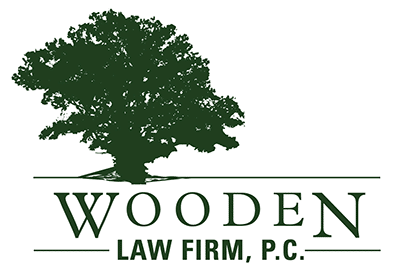Quieting Title: What are clouds on title, and how do you remove them?
When purchasing real property, it is crucial to search for “clouds” on the property’s title. Cloud on title is a broad term, but it generally refers to when there are errors or defects in the title history of a property which affect a party’s ownership interest and rights.
Clouds on title can be caused by a wide range of issues and circumstances. For instance, a previous owner may have not paid property taxes for a number of years and there are outstanding unpaid taxes. There could be a recorded judgment against a prior owner that has attached to the property in question. Or, a previous owner’s heir may still retain an ownership interest in the property. Each of these different situations would create a cloud on title that affects the owner’s interest in the property and would pose a significant financial risk to an owner, buyer, lender, and title insurer.
When clouds on title are discovered, one potential solution may be to file a lawsuit to “quiet title”. Lawsuits to quiet title are a common means of resolving some types of issues that cloud the title of a property. In these suits, an owner petitions the court to clear title to a piece of land by divesting a known, or unknown, third party of their interest in the land.
In Tennessee, lawsuits to quiet title are brought by filing a complaint to quiet title in the Chancery Court of the county in which the property is located. A party seeking to quiet title may include a number of different claims to support their suit such as: adverse possession, title by prescription, payment of property taxes, etc…
As with any lawsuit, any person known to have an interest in the property must be given notice of the lawsuit, as well as time to respond.
How long does it take to quiet title?
The timeline of a quiet title lawsuit is dependent upon the facts of the case and whether there are known defendants. Generally, the timeline of these types of suits can be divided into the following stages:
- Investigation of the title issues and property and preparation of the lawsuit documents;
- Filing of the lawsuit, service upon known or unknown defendants, and response period; and
- Hearing and other court proceedings.
When presented with a new case, an attorney will require some time to investigate and analyze the facts, so that an effective strategy can be devised and a lawsuit can be filed. Investigation into a case can be simple in some cases and extensive in others. If the identities or location of those with a potential interest are unknown, attorneys are obligated to conduct a diligent inquiry into finding the potential defendants.
After a lawsuit is filed, potential defendants are entitled to be given notice of the lawsuit to quiet title. When a defendant’s identity and address are known, they are given notice of the suit by traditional methods, such as mail or personal service. In these cases, defendants are given thirty days from receipt of the complaint to file an answer and respond to the suit. After this thirty day period, hearings are often scheduled within fourteen days. From the date of filing, quiet title lawsuits against known parties require at minimum forty-four days for the lawsuit to be served, time be given for the defendant to respond, and a hearing be set.

When the identity or location of a defendant is unknown, a party seeking to quiet title may request that the court give notice of the lawsuit by publication. In this type of case, the court will order that a notice of the lawsuit be published in a local newspaper for four consecutive weeks. After these publications, potential defendants are given thirty days to respond. Hearings are often scheduled for fourteen days after the notice period. At minimum, lawsuits to quiet title against unknown defendants may require seventy-two days to be served, allow time for the defendant to respond, and schedule a hearing.
If the suit is not contested, then a court will schedule a hearing upon an available court date and cases are often quickly resolved. However, if a defendant responds and the lawsuit is contested, the timeline of the case becomes difficult to predict. Contested cases must be resolved either by settlement or completion of the litigation process.
In order to quickly resolve a potential cloud on title, it is key to consult with competent attorneys as soon as title issues are discovered. The experienced title attorneys at Wooden Law Firm, P.C. have worked with numerous clients in quiet title actions and have resolved all manner of other title issues.


